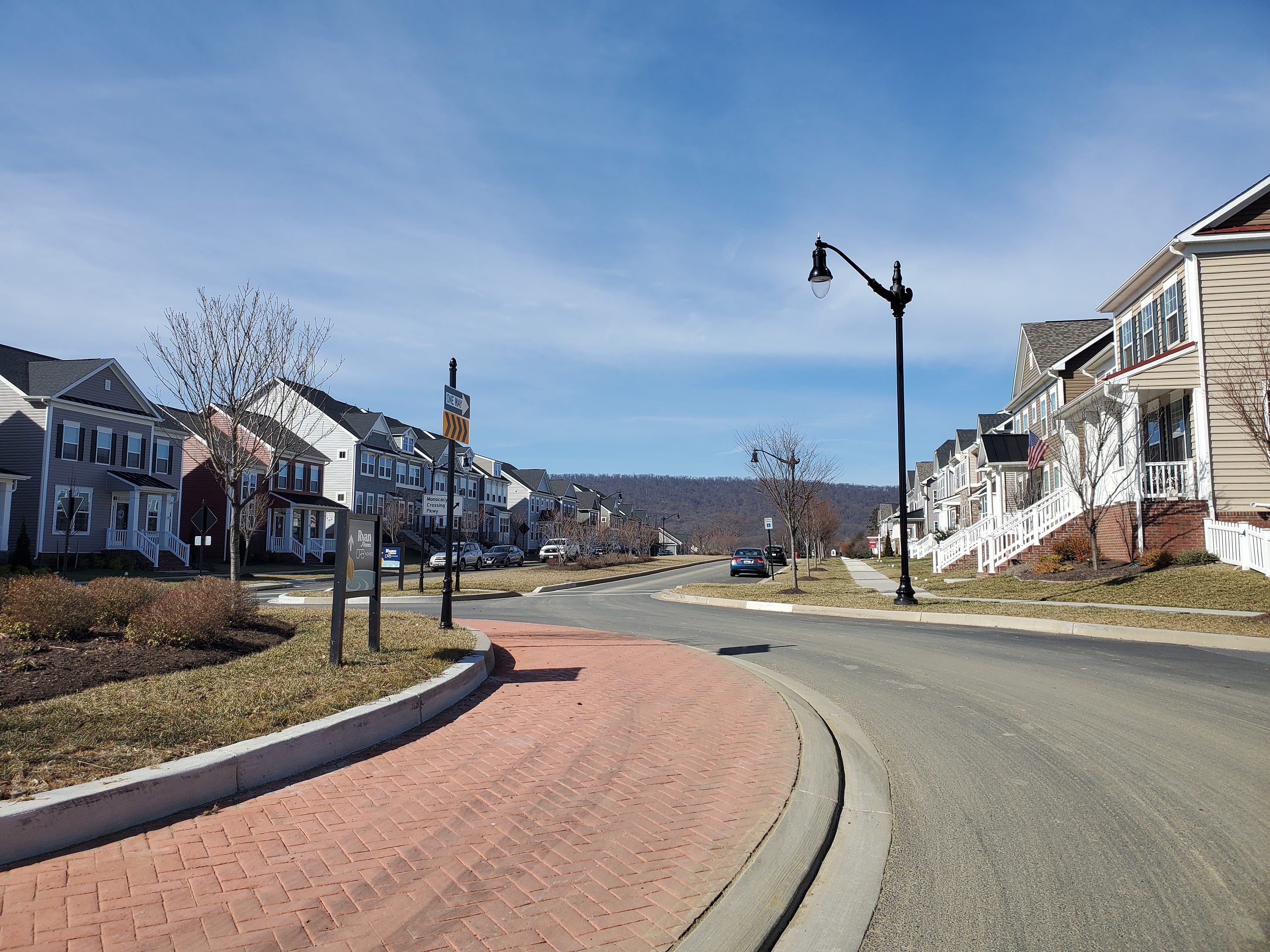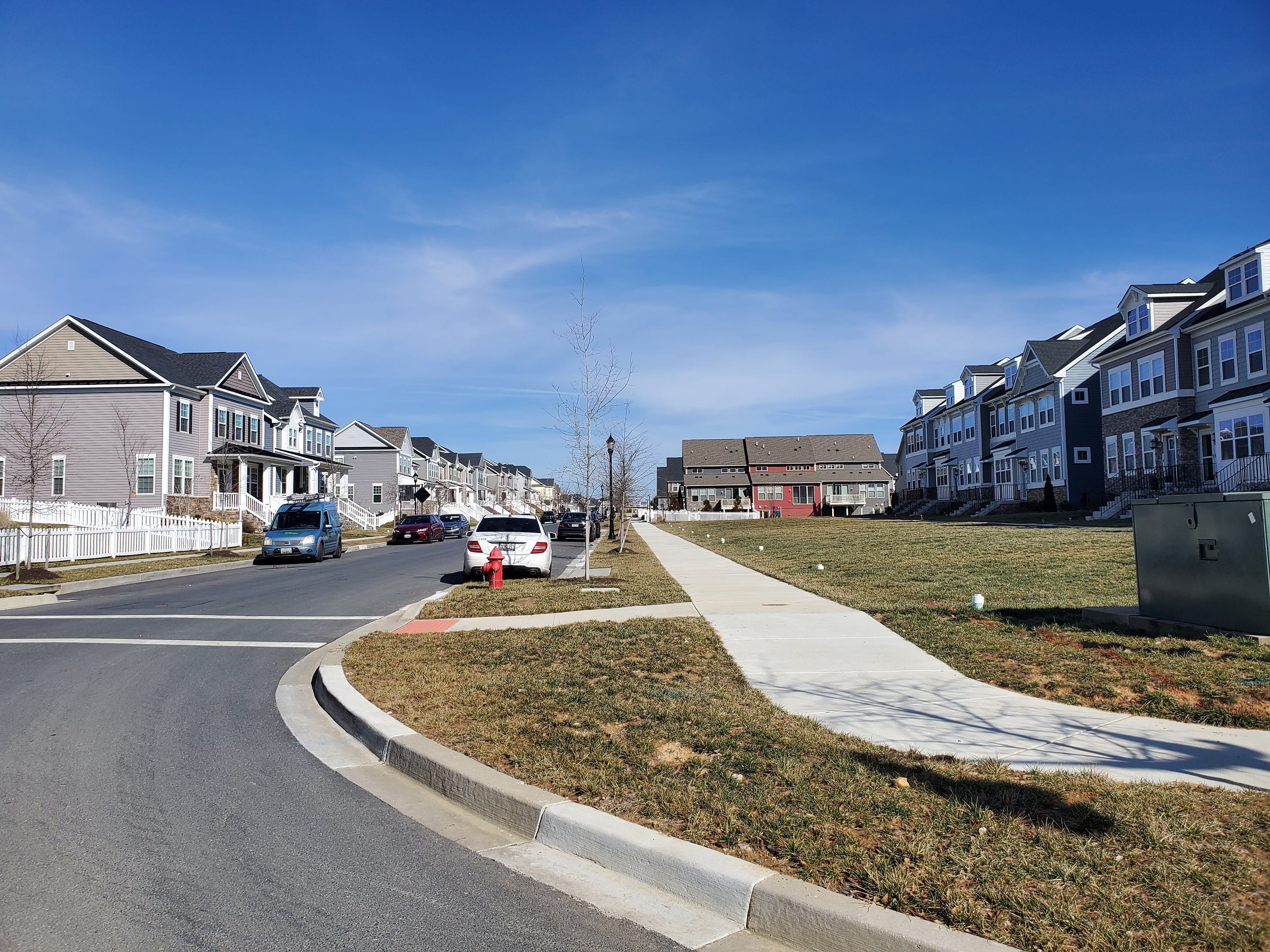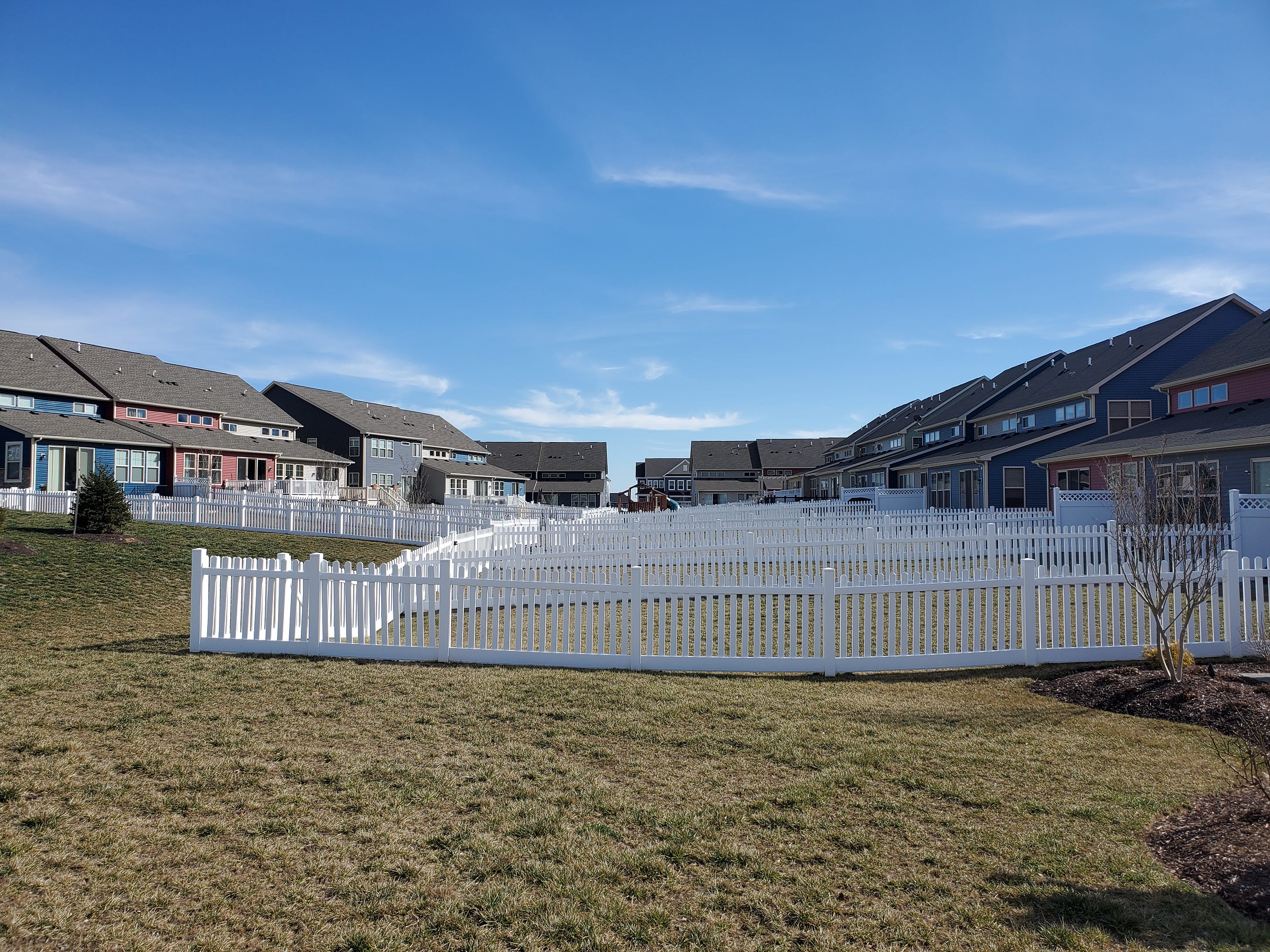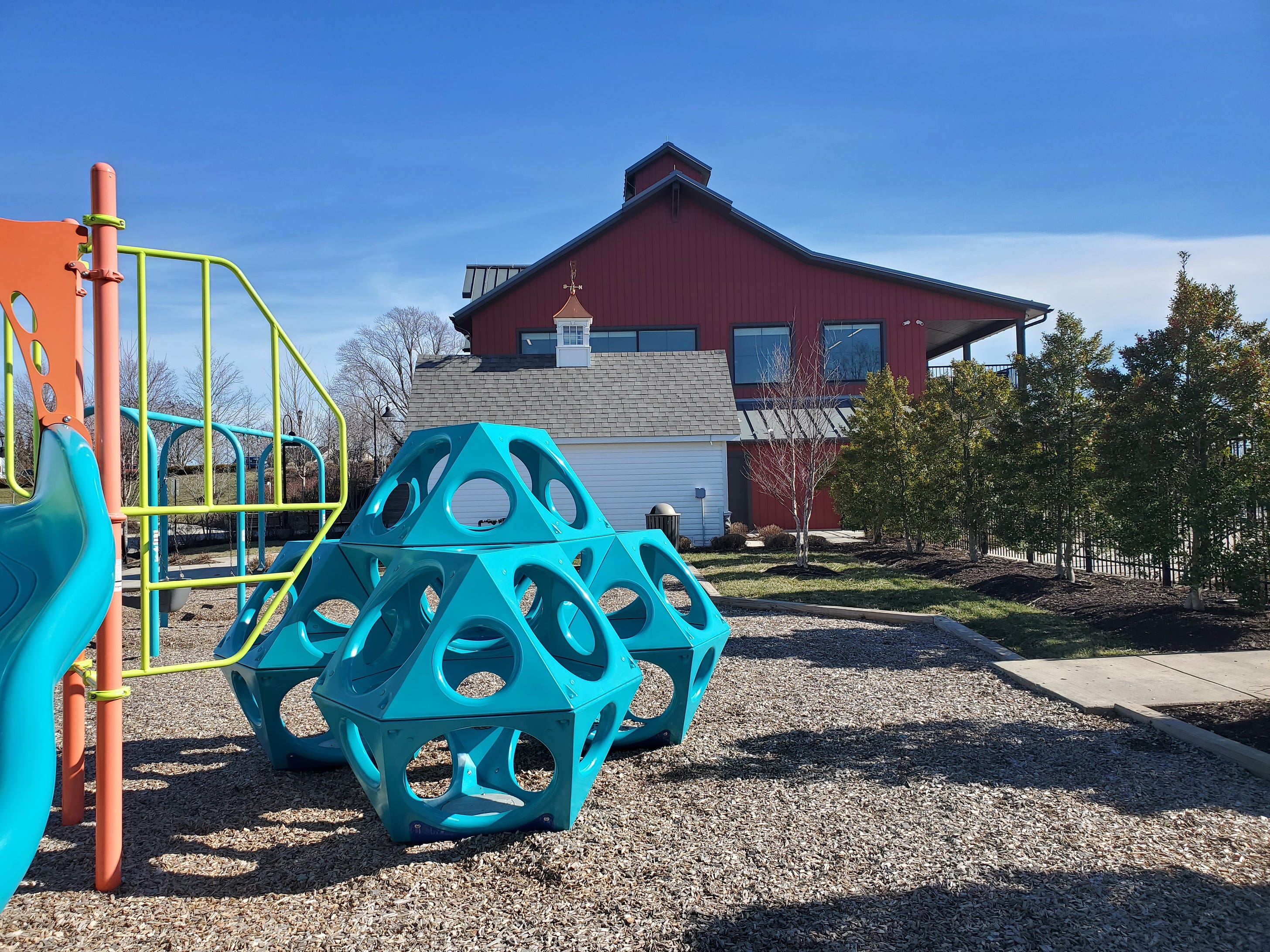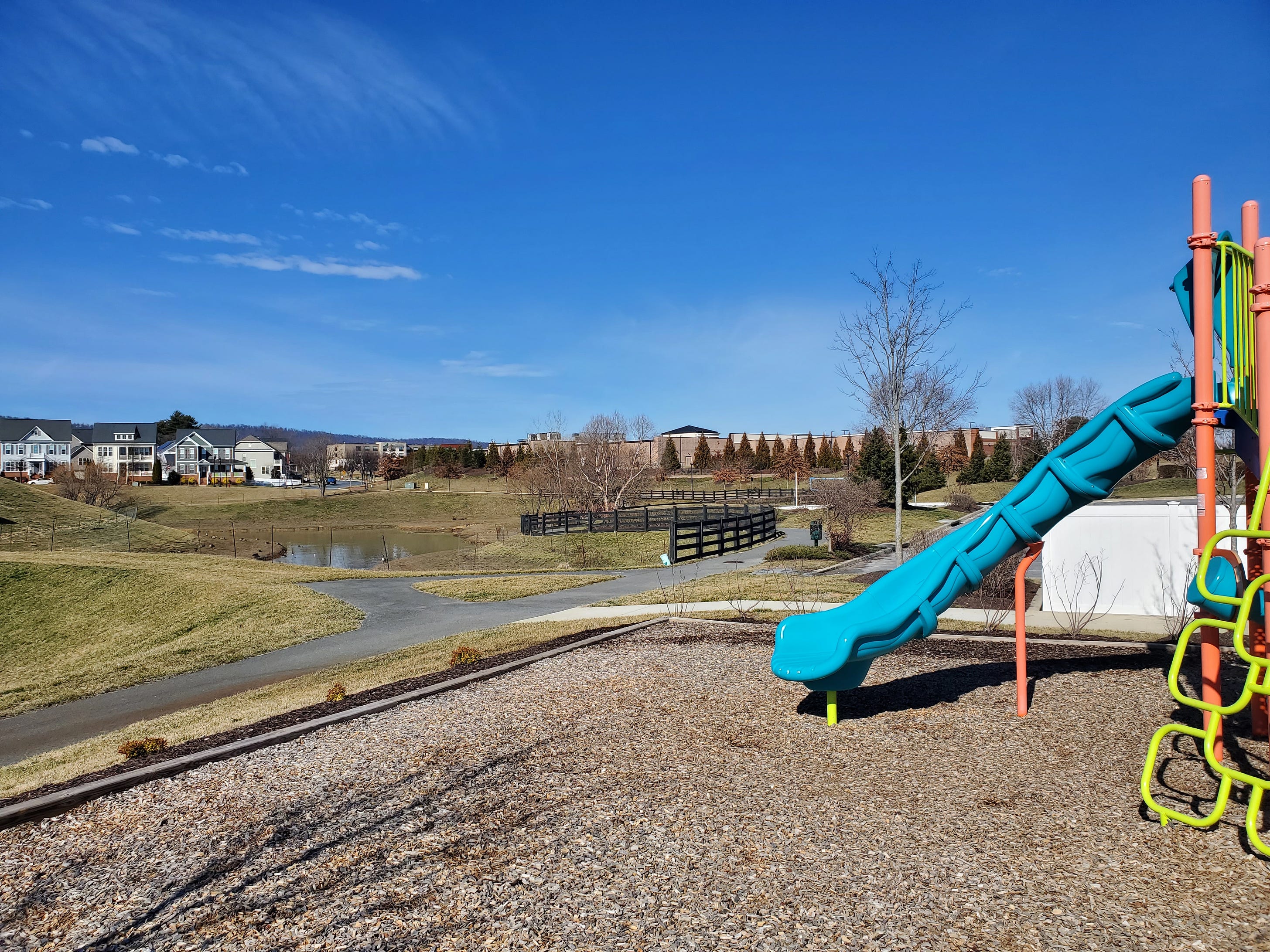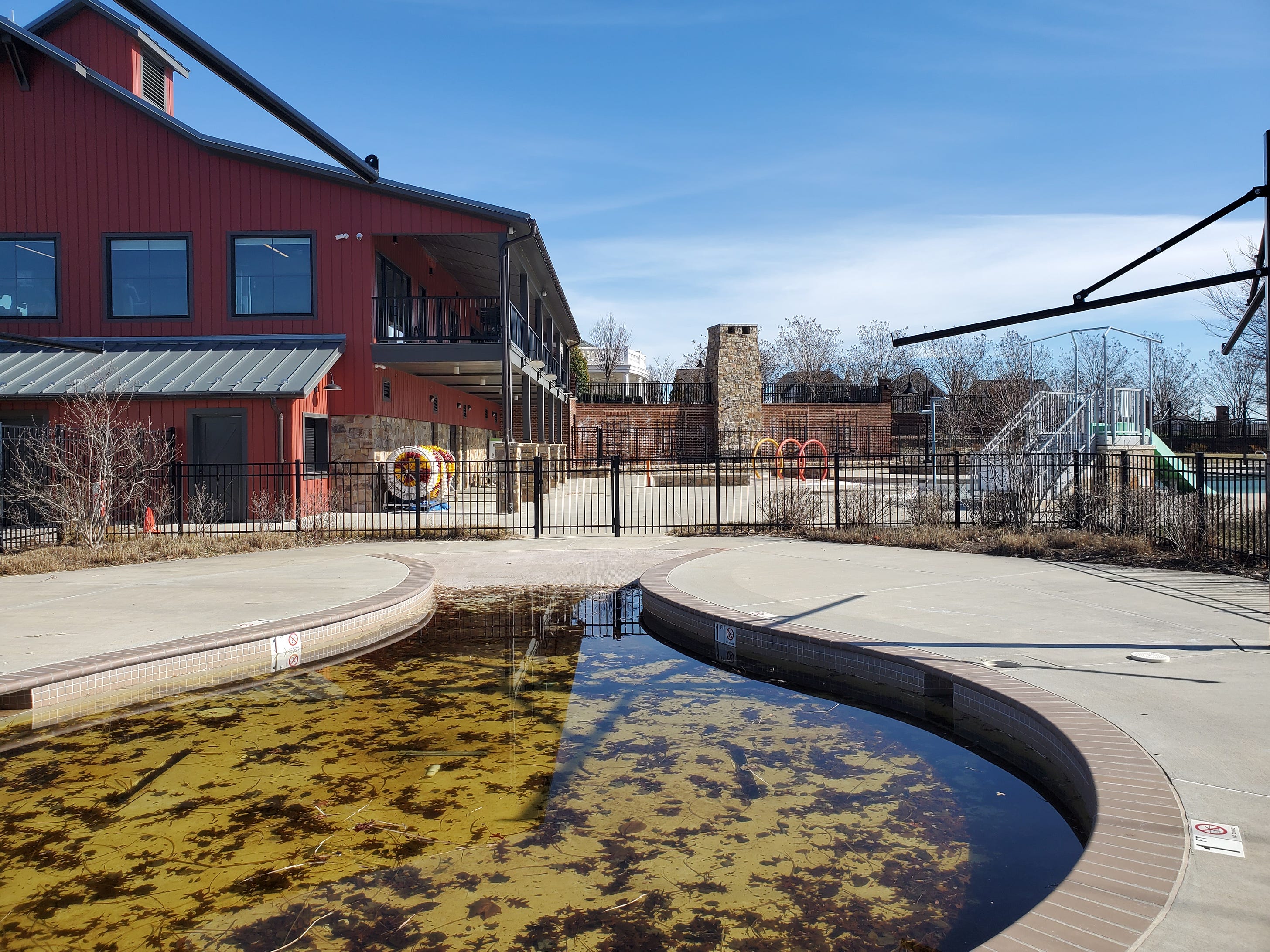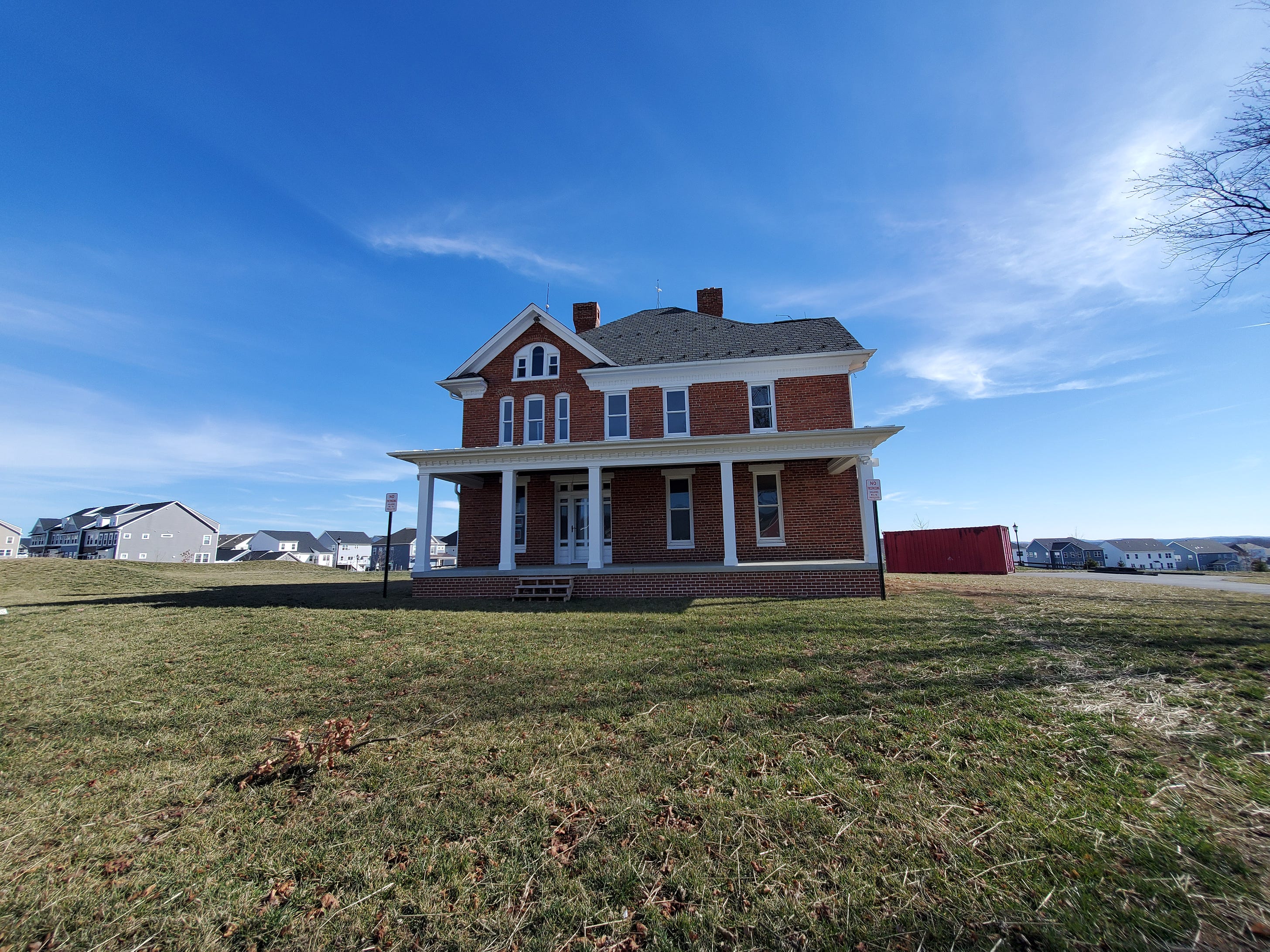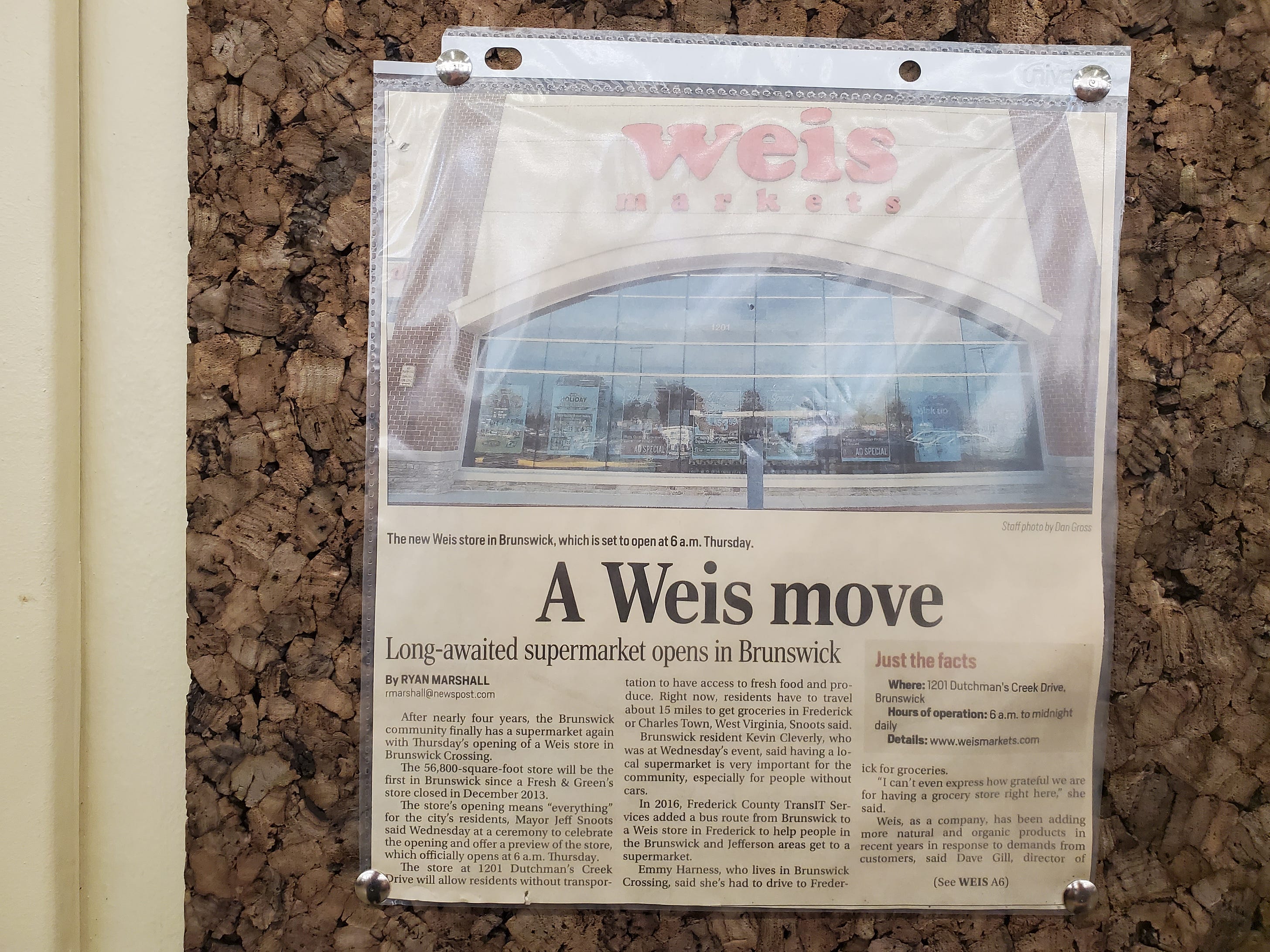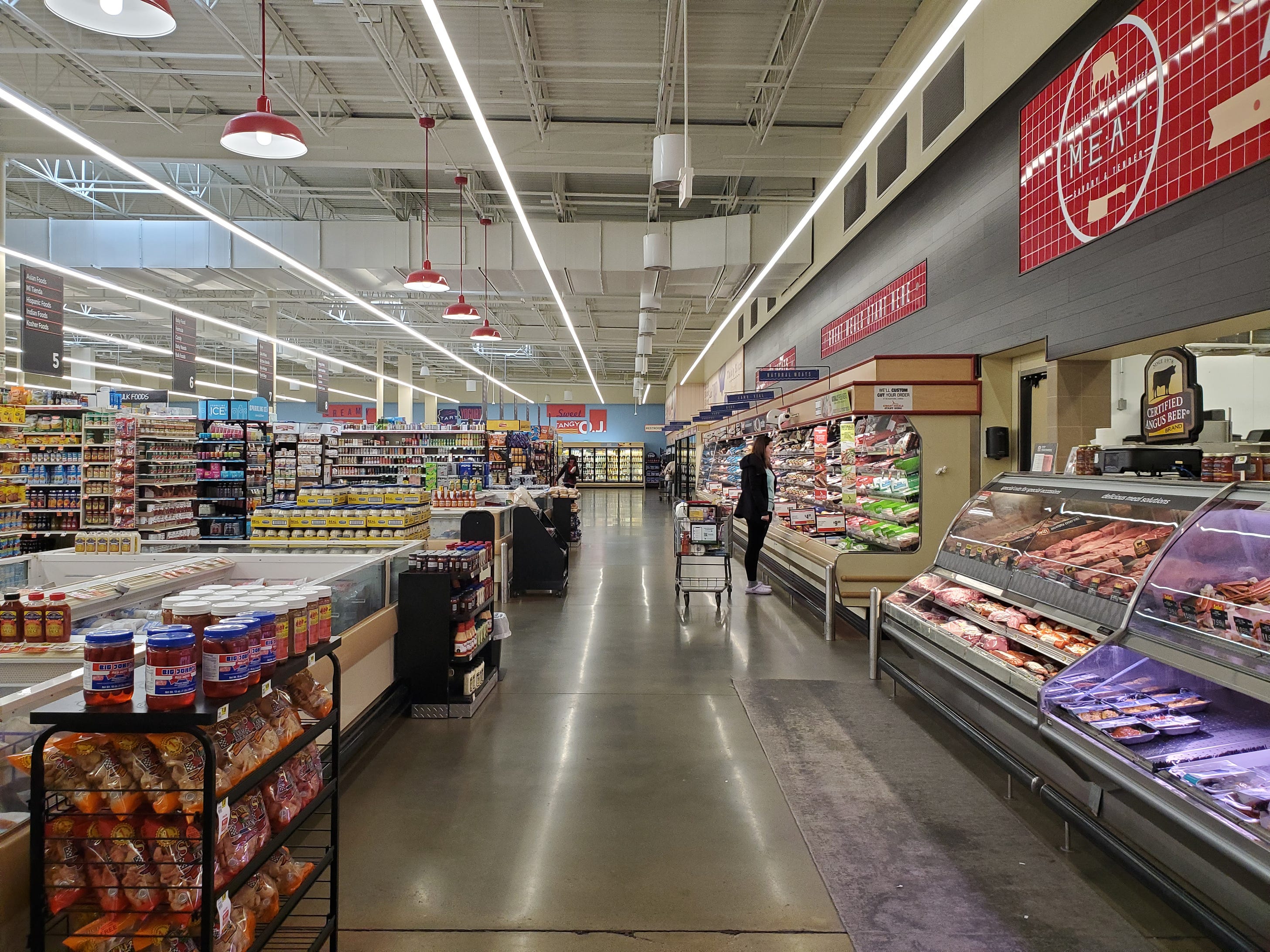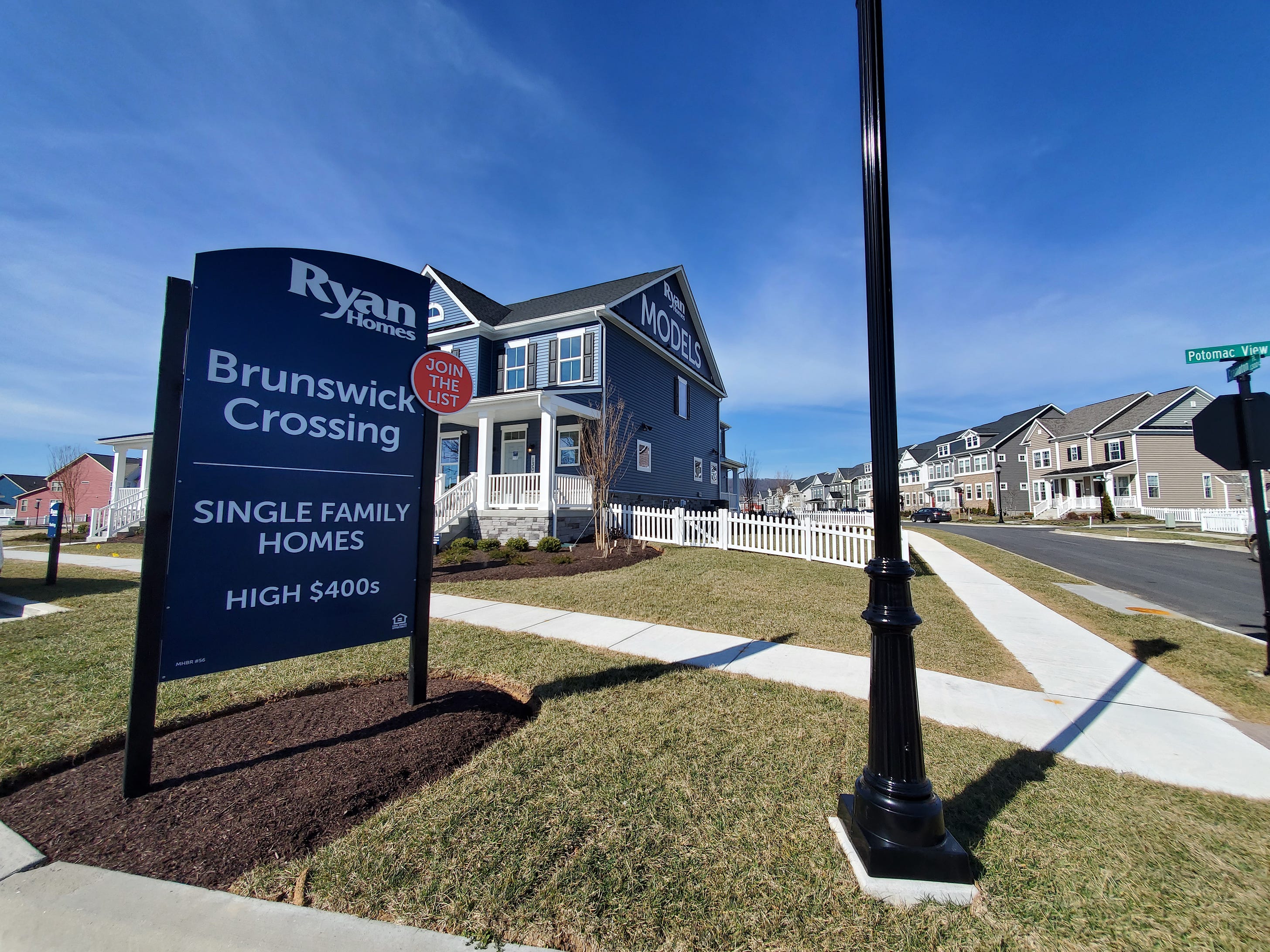The Deleted Scenes - What's So Bad About It?
A few weeks ago a friend and I drove up to Harpers Ferry in West Virginia by way of Brunswick, Maryland. Brunswick is an old, somewhat distressed-looking small city, with a decent-sized downtown area and a stop along the MARC commuter rail, which runs into Union Station in Washington, D.C. There’s a big project that, as far as I can tell, involves some restoration and some demolition, on a particularly deteriorated block downtown. But mostly, the town looks old and timeworn, with very little recent construction. However, just outside of town—still within city limits, a few minutes’ drive—is this, Brunswick Crossing: Many acres of winding streets full of closely packed detached houses and a handful of what the homebuilding industry calls “villas”—attached single-family houses, more horizontal than townhomes. You get your yard and your white fence: Playground, pool, and clubhouse: And old farmhouse, which will presumably be some kind of community or event space: And a brand new strip plaza with restaurants, stores, and Brunswick’s only supermarket following the closure of its last one several years ago. That’s a problem in a lot of small towns and rural areas: look at this newspaper clipping hanging in the new supermarket! Frederick isn’t exactly close for a grocery run. The new supermarket is large and very nice. And the houses start in the 400s! You can drive in about seven or eight minutes to a train that will take you straight to D.C., if you don’t mind sitting on a train for north of an hour. This represents everything wrong with residential development today. Instead of some sort of actual mixed-use fabric, or even just narrow, pleasantly walkable streets, we get wonky curvy unshaded expanses and a strip mall that you’ll probably drive the two minutes to. We get something that in and of itself serves as a sort of master-planned community, but with no relationship to anything at all outside its private borders, not even the old town it practically abuts. We get countryside eaten away in random chunks, and the crowding of an inner suburb with none of the amenities of older, denser places. So my question is, what’s so bad about it? How many downed trees or paved-over fields out here really matter? Who cares if in 30 or 50 or 70 years the development is falling apart and becomes a drag on municipal finances (as it no doubt will, and may already be)? What difference does it make if the homes look tacky or the yards are all squeezed together? It’s not like we’re in the boondocks—this is Frederick County, which abuts Montgomery County, which borders D.C. itself. Without traffic (a big if, of course) you can drive to the core of downtown D.C. in about an hour and 20 minutes. My friend and I are both very much committed urbanists, but we sort of asked ourselves all this. The idea of being able to get a brand new house for almost half the price of a decades-old house in an inner county, that close to commuter rail and a supermarket? Maybe we’re in a bubble if we can’t even imagine how anybody would jump at at that deal. Look, I wouldn’t do it now, or five years ago, even if I’d had the money. I wouldn’t do it at all, because my wife and I managed to get a house in Fairfax County, with some help and some luck, and we like it here. But if your values and preferences say, I don’t need all the cultural amenities of the city, I want to start a family and have room for the kids, and I’m not made of money, and maybe I don’t need to commute every day…what reason is there not to move out here? We also discussed this—this undercurrent of tension between urbanism and family life, this expectation that you move to suburbia when you get married and have kids, that urban life is in some sense immature or consumeristic. I’m very conscious of not appearing to discount the value of family. I don’t view urbanism as some bespoke way of describing a single, childless, unattached lifestyle. When you talk about getting rid of SUVs or stopping exurban development, a lot of people hear that. I think of something people sometimes say, as a sort-of objection to urbanism: community is the people you know. Your church. Your kids and their friends and their parents, the relationships you cultivate, volunteering and hobbies. Urbanists lack those attachments; they want the built environment to do that work for them. They think sitting in a coffee shop or allowing bars within walking distance of residential developments will somehow fix the loneliness problem. I don’t think this is true, but honestly, there might be a grain of truth to it, for some people, anyway. My feeling is that a good built environment facilitates building community. Suburbia isolates people. And I guess that’s my real objection here. Not the fiscal or environmental implications of building way out at the metro-area fringe like this. My reticence to be YIMBY for exurban sprawl is my understanding that you come here for homeownership, thinking that you’ll always just ride or drive back to your job or your friends closer in when you feel like it. But once you’re there, you realize it exerts a sort of mental gravitational pull. A 10- or 20-minute drive can be done on impulse. A 40-minute drive is much harder to justify. You have to affirmatively choose to take that time and gas expense. More of your trips and outings and errands involve this friction. You’ll find yourself alone, and the much lower density of stuff out here means it’s harder to build a “thick” network of friends and acquaintances. Everything is physically spread out, in a different direction. Having kids can make this worse, because all the various things they do and friends they have are also likely to be spread out and in different directions. My fear is that it’s simplistic, even a false dream, to think that you’ve made it because you got a new house at the right price. So much of life is the unquantifiable stuff—the third places and weak ties. Urbanism is a set of tools that makes it easier to cultivate ties and build relationships. Like anything done well, it’s almost invisible. You might not think about it or even notice it. But you might miss it when it’s gone. Related Reading: Which Housing Is “Housing Crisis Housing”? What If Suburbia Still Looked Like This? Thank you for reading! Please consider upgrading to a paid subscription to help support this newsletter. You’ll get a weekly subscribers-only piece, plus full access to the archive: over 900 pieces and growing. And you’ll help ensure more like this! You're currently a free subscriber to The Deleted Scenes. For the full experience, upgrade your subscription. |
Older messages
Repeat
Saturday, March 16, 2024
The freedom of routine, and a visit to a rural store ͏ ͏ ͏ ͏ ͏ ͏ ͏ ͏ ͏ ͏ ͏ ͏ ͏ ͏ ͏ ͏ ͏ ͏ ͏ ͏ ͏ ͏ ͏ ͏ ͏ ͏ ͏ ͏ ͏ ͏ ͏ ͏ ͏ ͏ ͏ ͏ ͏ ͏ ͏ ͏ ͏ ͏ ͏ ͏ ͏ ͏ ͏ ͏ ͏ ͏ ͏ ͏ ͏ ͏ ͏ ͏ ͏ ͏ ͏ ͏ ͏ ͏ ͏ ͏ ͏ ͏ ͏ ͏ ͏ ͏ ͏ ͏ ͏ ͏
New and Old #153
Friday, March 15, 2024
Friday roundup and commentary ͏ ͏ ͏ ͏ ͏ ͏ ͏ ͏ ͏ ͏ ͏ ͏ ͏ ͏ ͏ ͏ ͏ ͏ ͏ ͏ ͏ ͏ ͏ ͏ ͏ ͏ ͏ ͏ ͏ ͏ ͏ ͏ ͏ ͏ ͏ ͏ ͏ ͏ ͏ ͏ ͏ ͏ ͏
A Crash Can Be A Bash
Friday, March 15, 2024
Getting where you're going doesn't have to involve a risk of death ͏ ͏ ͏ ͏ ͏ ͏ ͏ ͏ ͏ ͏ ͏ ͏ ͏ ͏ ͏ ͏ ͏ ͏ ͏ ͏ ͏ ͏ ͏ ͏ ͏ ͏ ͏ ͏ ͏ ͏ ͏ ͏
An Engine Of Color
Wednesday, March 13, 2024
What Do You Think You're Looking At? #153 ͏ ͏ ͏ ͏ ͏ ͏ ͏ ͏ ͏ ͏ ͏ ͏ ͏ ͏ ͏ ͏ ͏ ͏ ͏ ͏ ͏ ͏ ͏ ͏ ͏ ͏ ͏ ͏ ͏ ͏ ͏ ͏ ͏ ͏ ͏ ͏ ͏ ͏ ͏
If You Build It, They Won't Care
Tuesday, March 12, 2024
"Try it, you'll like it" applies to the built environment too ͏ ͏ ͏ ͏ ͏ ͏ ͏ ͏ ͏ ͏ ͏ ͏ ͏ ͏ ͏ ͏ ͏ ͏ ͏ ͏ ͏ ͏ ͏ ͏ ͏ ͏ ͏ ͏ ͏ ͏ ͏ ͏
You Might Also Like
Solidarity Or Generational Theft?
Monday, March 3, 2025
How should housing folks think about helping seniors stay in their communities? ͏ ͏ ͏ ͏ ͏ ͏ ͏ ͏ ͏ ͏ ͏ ͏ ͏ ͏ ͏ ͏ ͏ ͏ ͏ ͏ ͏ ͏ ͏ ͏ ͏ ͏ ͏ ͏ ͏ ͏ ͏ ͏ ͏ ͏ ͏ ͏ ͏ ͏ ͏ ͏ ͏ ͏ ͏ ͏ ͏ ͏ ͏ ͏ ͏ ͏ ͏ ͏ ͏ ͏ ͏ ͏ ͏ ͏ ͏ ͏ ͏
The Banality of Elon Musk
Monday, March 3, 2025
Or, the world we get when we reward thoughtlessness ͏ ͏ ͏ ͏ ͏ ͏ ͏ ͏ ͏ ͏ ͏ ͏ ͏ ͏ ͏ ͏ ͏ ͏ ͏ ͏ ͏ ͏ ͏ ͏ ͏ ͏ ͏ ͏ ͏ ͏ ͏ ͏ ͏ ͏ ͏ ͏ ͏ ͏ ͏ ͏ ͏ ͏ ͏ ͏ ͏ ͏ ͏ ͏ ͏ ͏ ͏ ͏ ͏ ͏ ͏ ͏ ͏ ͏ ͏ ͏ ͏ ͏ ͏ ͏ ͏ ͏ ͏ ͏ ͏ ͏ ͏ ͏ ͏ ͏ ͏
“In life I’m no longer capable of love,” by Diane Seuss
Monday, March 3, 2025
of that old feeling of being / in love, such a rusty / feeling, ͏ ͏ ͏ ͏ ͏ ͏ ͏ ͏ ͏ ͏ ͏ ͏ ͏ ͏ ͏ ͏ ͏ ͏ ͏ ͏ ͏ ͏ ͏ ͏ ͏ ͏ ͏ ͏ ͏ ͏ ͏ ͏ ͏ ͏ ͏
Your dishwasher isn’t a magician
Monday, March 3, 2025
— Check out what we Skimm'd for you today March 3, 2025 Subscribe Read in browser Together with brad's deals But first: 10 Amazon Prime benefits you may not know about Update location or View
My 10 year anniversary of being single: exclusive extract from my book
Monday, March 3, 2025
Single: Living a Complete Life on Your Own Terms is out now ͏ ͏ ͏ ͏ ͏ ͏ ͏ ͏ ͏ ͏ ͏ ͏ ͏ ͏ ͏ ͏ ͏ ͏ ͏ ͏ ͏ ͏ ͏ ͏ ͏ ͏ ͏ ͏ ͏ ͏ ͏ ͏ ͏ ͏ ͏ ͏ ͏ ͏ ͏ ͏ ͏ ͏ ͏ ͏ ͏ ͏ ͏ ͏ ͏ ͏ ͏ ͏ ͏ ͏ ͏ ͏ ͏ ͏ ͏ ͏ ͏ ͏ ͏ ͏ ͏ ͏ ͏ ͏ ͏ ͏ ͏
Selena Gomez Shut Down The Oscars Red Carpet In This Spectacular Gown
Monday, March 3, 2025
10/10. The Zoe Report Daily The Zoe Report 3.2.2025 Selena Gomez Shut Down The Oscars Red Carpet In A Spectacular Gown (Red Carpet) Selena Gomez Shut Down The Oscars Red Carpet In A Spectacular Gown 10
David Beckham Opens Up About Turning 50, Finally Mastering Pullups, and Feasting on Jellied Eels
Sunday, March 2, 2025
View in Browser Men's Health SHOP MVP EXCLUSIVES SUBSCRIBE THIS WEEK'S MUST-READ David Beckham Opens Up About Turning 50, Finally Mastering Pullups, and Feasting on Jellied Eels David Beckham
'Walk on the Wild Side' Could Have Been a Contender
Sunday, March 2, 2025
Instead, its "wild" women remained caged by Hollywood ͏ ͏ ͏ ͏ ͏ ͏ ͏ ͏ ͏ ͏ ͏ ͏ ͏ ͏ ͏ ͏ ͏ ͏ ͏ ͏ ͏ ͏ ͏ ͏ ͏ ͏ ͏ ͏ ͏ ͏ ͏ ͏ ͏ ͏ ͏ ͏ ͏ ͏ ͏ ͏ ͏ ͏ ͏ ͏ ͏ ͏ ͏ ͏ ͏ ͏ ͏ ͏ ͏ ͏ ͏ ͏ ͏ ͏ ͏ ͏ ͏ ͏ ͏ ͏ ͏ ͏ ͏ ͏ ͏
The Best Sites to Find Affordable Brand Name Dupes
Sunday, March 2, 2025
Common Bathroom Repairs That Are Actually Really Easy. From furniture to perfume, cheap dupes—or “duplicates”—are having a moment. Here are the tools that make them easier to find. Not displaying
The Weekly Wrap #202
Sunday, March 2, 2025
03.02.2025 ͏ ͏ ͏ ͏ ͏ ͏ ͏ ͏ ͏ ͏ ͏ ͏ ͏ ͏ ͏ ͏ ͏ ͏ ͏ ͏ ͏ ͏ ͏ ͏ ͏ ͏ ͏ ͏ ͏ ͏ ͏ ͏ ͏ ͏ ͏ ͏ ͏ ͏ ͏ ͏ ͏ ͏ ͏ ͏ ͏ ͏ ͏ ͏ ͏ ͏ ͏ ͏ ͏ ͏ ͏ ͏ ͏ ͏ ͏ ͏ ͏ ͏ ͏ ͏ ͏ ͏ ͏ ͏ ͏ ͏ ͏ ͏ ͏ ͏ ͏ ͏ ͏ ͏ ͏ ͏ ͏ ͏ ͏ ͏ ͏ ͏ ͏ ͏ ͏ ͏ ͏ ͏ ͏ ͏ ͏
